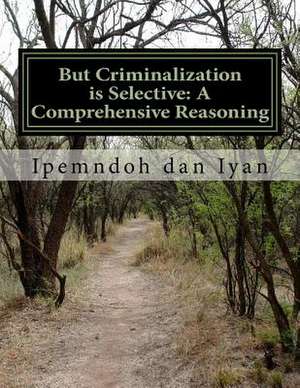But Criminalization Is Selective
Autor Ipemndoh P. Dan Iyan Mphilen Limba Engleză Paperback
Preț: 64.20 lei
Nou
Puncte Express: 96
Preț estimativ în valută:
12.28€ • 12.86$ • 10.16£
12.28€ • 12.86$ • 10.16£
Carte disponibilă
Livrare economică 17-31 martie
Preluare comenzi: 021 569.72.76
Specificații
ISBN-13: 9781500517892
ISBN-10: 1500517895
Pagini: 36
Dimensiuni: 216 x 280 x 2 mm
Greutate: 0.11 kg
Editura: CREATESPACE
ISBN-10: 1500517895
Pagini: 36
Dimensiuni: 216 x 280 x 2 mm
Greutate: 0.11 kg
Editura: CREATESPACE
